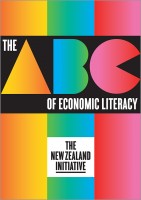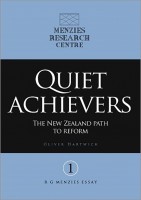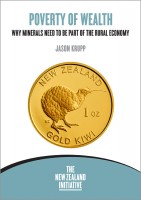Who's afraid of eurozone deflation?
Usually, we call things stable when they do not change and unstable if they do. Apparently this is not the case in monetary policy. Read more

Usually, we call things stable when they do not change and unstable if they do. Apparently this is not the case in monetary policy. Read more
If you have been scanning the press over the past week or so you may have come across an opinion piece by Michael Pascoe, prophesying doom for the New Zealand dairy industry and the Kiwi economy in general. Pascoe has taken a look at the similarity between iron ore and dairy prices since 2013 - both have more or less halved in value over the period - and concluded that there is a hard landing in store for New Zealand. Read more
We should not pay through the roof for small safety benefits, argues Bryce Wilkinson How would you react to being told that government regulations have added 50 percent to the cost of replacing a tin roof on a house? I ask because a long-standing professional builder told me in a chance encounter shortly before Christmas that scaffolding requirements under the Health and Safety in Employment Act 1992 mean that a small re-roofing job that would have otherwise cost $4,000 may now cost $6,000. Read more
Estimates have the economy growing above the trend rate compared to other developed nations, but other measures show the benefits of growth aren’t filtering through to all. Patrick O’Meara looks at whether New Zealand's household really are better off. Read more
In my last column of 2014, I wrote that European leaders usually pick the least appealing policy option and still manage to make it worse (A Greek olive branch for Steve Keen, 18 December). Maybe that was a premature assessment. Read more
Wellington (18 December 2014): The New Zealand Initiative’s Head of Research, Dr Eric Crampton, today urged Cabinet to look to the evidence before banning alcohol advertising and sponsorship. The Ministerial Forum on Advertising and Sponsorship this week recommended reasonably comprehensive bans on alcohol advertising and sponsorship. Read more

In early 2014, there had been strong hints in the media that the next general election was likely to take place in September and so the team of The New Zealand Initiative was looking forward (well, sort of) to a very long, dragged out election campaign. Well, we decided to counter the political noise of the upcoming election campaign with our own campaign: The Campaign for Economic Literacy. Read more
Oh, the perils of the silly season. If your office is typical, you’re in a mad dash trying to finish everything that needs to be done before Christmas. Read more
In a series of articles earlier this year, we introduced Insights readers to some basic ideas from the wonderful world of economics. Today, we are releasing the compilation of pieces in a short pamphlet, The ABC of Economic Literacy. Read more
For anyone who has used Uber, knows someone who has used it, or is aware it exists, the crowd consensus seems to be that it is pretty great. Uber, which recently entered the New Zealand market, is an app that offers an alternative to taxis by allowing users to order a driver to get them to their destination for a set price. Read more
Only until a couple of years ago, it would have been unthinkable to suggest that New Zealand could hold some policy lessons for Australia, let alone that it could be seen as a model that Australia might wish to emulate. Australians had become used to regarding New Zealanders as their poorer cousins. Read more
When you publish a report with the title Poverty of Wealth: Why minerals need to be part of the rural economy, it is best to prepare yourself for some strong responses to your work, and to quickly grow a thick skin. Feedback from green groups, politicians, officials, and the online communities who populate the comments sections of various websites are all obvious sources of critical feedback. Read more
Wellington (3 December 2014): Executive Director of The New Zealand Initiative, Dr Oliver Hartwich, is today publishing his new monograph Quiet Achievers: The New Zealand Path to Reform. It will be presented by Australia’s Minister for Finance, Senator the Hon. Read more

Do today’s politicians have the courage to make hard choices? Or has the furious pace of modern politics put an end to the age of reform? Read more

This report, the first in a two-part series, seeks to examine the factors that prevent greater mineral extraction in New Zealand, a business model that could help stem some of the economic pressures faced by many of the country's rural regions. The key findings of Poverty of Wealth are that: Rural New Zealand is in decline Economic growth is concentrated in urban areas, particularly Auckland, Wellington and Christchurch, whereas seven of the rural regions recorded negative economic growth in the year ending March 2013, and a further two recorded flat growth. Read more